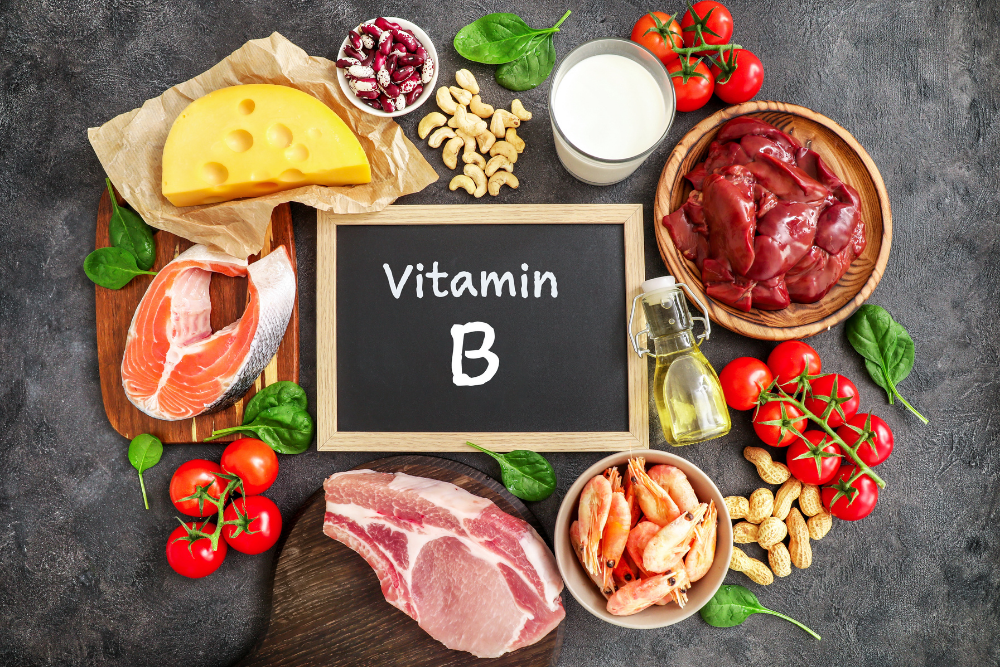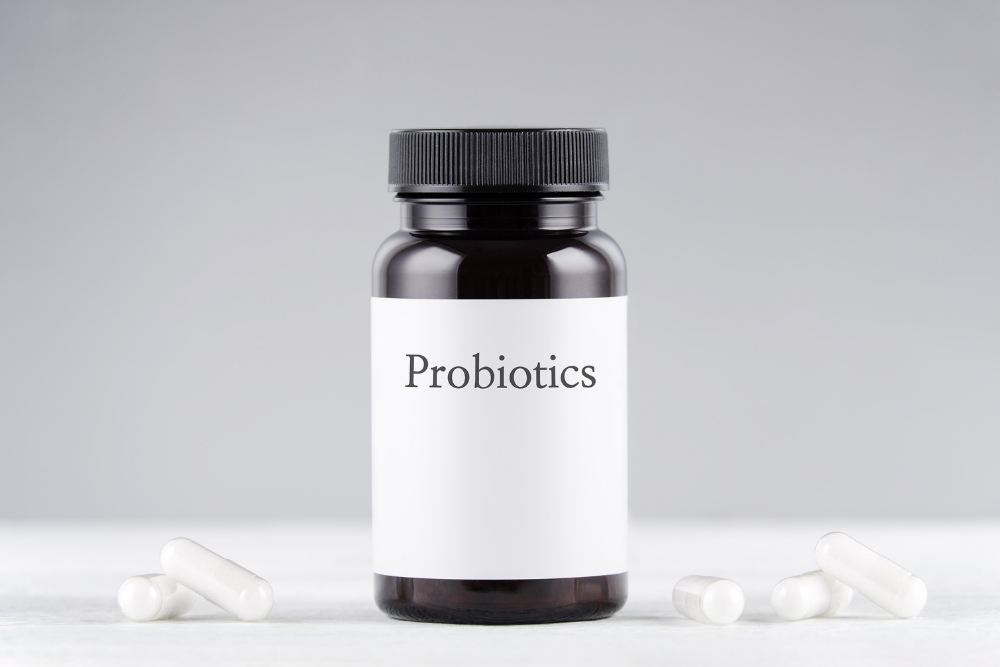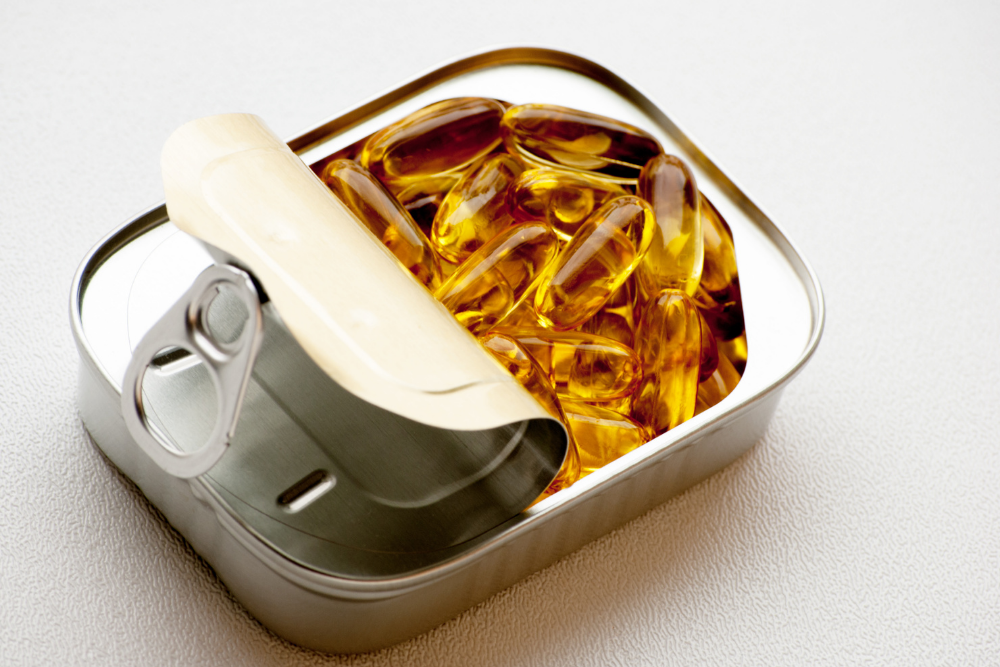
If you have celiac disease or gluten intolerance, you may be wondering what supplements you should take to help heal your body and maintain long-term, good health. In this post, I’ll share some of the supplements I take for celiac disease and what I recommend for gluten intolerance as well. Please consult with your healthcare provider prior to taking any supplements or acting on any advice in this article. This post contains affiliate links. Please see my disclosures and disclaimers.
It’s no secret that people with celiac disease, an inherited autoimmune condition that afflicts 1 in 100 people in the U.S., suffer from a slew of annoying and sometimes painful symptoms. In fact, there are more than 100 symptoms connected to celiac disease and gluten intolerance.
Some of the symptoms are classical and include gastroenterological issues such as bloating, gas, diarrhea, and constipation.
Other symptoms, or non-classical symptoms, include migraines, joint pain, fatigue, and fertility issues, among hundreds of other potential symptoms related to the genetic disease.
In patients with celiac disease, such symptoms often stem from nutrient deficiencies since people with celiac disease are unable to properly absorb nutrients from the food they are eating.
Every time a person with celiac disease eats gluten, a protein found in wheat, rye, barley, and sometimes oats, their body mistakes the protein as a foreign invader and launches an immune system attack on the small intestine. Over time, the healthy tissue surrounding the small intestine becomes damaged and even destroyed.
What many people don’t realize is that the small intestine is an essential organ that helps a person absorb nutrients from the food they eat. In fact, the small intestine takes nutrients from the food and distributes it to every organ and cell in the body.
No human can function well if the small intestine is chronically impaired or malfunctioning.
People with non-celiac gluten sensitivities, also known as gluten intolerance, don’t experience the same nutritional deficiencies as their celiac disease counterparts.
However, they instead experience chronic inflammation at the site of the small intestine as well as chronic leaky gut.
A chronic leaky gut, which I’ll talk about more later, can lead to a slew of disorders, diseases, and even early death.
How to Detect a Nutrient Deficiency
Researchers have found vitamin and nutrient deficiencies to be “highly prevalent” in newly diagnosed celiac disease patients.
Telltale signs of nutrient deficiencies can look like brittle nails, hair loss and unhealthy pale skin. People with nutrient deficiencies also find themselves catching every cold that goes around and feeling chronically fatigued.
To know for sure if a nutrient deficiency is at play, I recommend requesting or purchasing a simple blood test.
I’ve learned that many insurance companies don’t cover vitamin check blood tests (check with your doctor and/or insurance provider); if this is the case, I highly recommend this test and this test, both of which can be taken at home without a doctor’s supervision or prescription.
Healing from Celiac Disease
Healing from celiac disease takes time and may require more than just going gluten-free. While most experts agree that time is the best medicine, I believe there are a few ways to nourish the body to encourage it to heal faster.
First and most importantly, people with celiac disease and gluten sensitivity need to follow a strict, gluten-free diet (no cheating, ever). The only way to begin the healing process is to remove the key irritant (gluten) in the first place.
Second, people with celiac disease or gluten sensitivity need to eat plenty of nutrient-dense foods, including fruits and vegetables, daily.
This will help to replenish a person’s depleted nutrient bank. As the small intestine heals, it will begin to absorb essential vitamins and minerals from these much-needed nutrient-rich foods.
Not sure what to eat? Read 10 Naturally Gluten-Free Foods Every Celiac Should Be Eating.
Finally, a person healing from celiac disease shouldn’t be shy about taking a few supplements. While a nutrient-rich diet will aid in the healing process, I believe it’s also important to boost the nutrient load, and that’s where select supplements can help.
Below I share the five supplements I take every day to encourage my body to function optimally. I was diagnosed with celiac disease nearly 10 years ago, and I still take these supplements daily. So far, so good. Individuals should consult with their healthcare team to decide which supplements are needed and right for them.
Five Supplements I Take Daily
Below are the five supplements I take daily. These supplements have helped me heal from celiac disease and have blessed me with good health for the past 10 years.
(1) Vitamin D
Vitamin D is an essential vitamin that promotes overall good health. It also aids in the absorption of calcium, which ensures strong, healthy bones.
Evidence suggests that Vitamin D plays a protective role in the gastrointestinal tract. Researchers say, “Vitamin D protects the gut barrier by regulating tight junction proteins.” Tight junctions allow for nutrients from food to enter the bloodstream and feed the rest of the body.
However, when the tight junctions become weakened, as it does in people with celiac disease and gluten sensitivity, the tight junctions open too wide, enabling undigested food particles to break through the intestinal wall and enter the bloodstream, leading to inflammation and disease. This is known as intestinal permeability or leaky gut.
According to the Cleveland Clinic, approximately 42 percent of the U.S. population is Vitamin D deficient, potentially due to poor nutrition, lack of sun exposure, and the prevalence of long-term prescription medications for heartburn, acid reflux, and constipation, all of which affect the body’s ability to properly absorb Vitamin D.
There are three ways a person can increase his or her Vitamin D load:
- Eat Plenty of Vitamin D-rich foods. Good food sources of Vitamin D include fatty fish (salmon, sardines, tuna), eggs, soy- and almond milk fortified with Vitamin D.
- Take a Vitamin D Supplement. Take a Vitamin D supplement every day (adults need about 400-800 international units daily). I take this Vitamin D supplement.
- Soak in Sunshine. Individuals should try to spend a small amount of time (20-30 minutes) in the sun each day, as Vitamin D can be absorbed through the skin. Avoid peak hours to deter sunburn.

(2) Vitamin B Complex
Another essential vitamin lacking in people with celiac disease is Vitamin B12. Research even suggests that 41 percent of celiac disease patients have a Vitamin B12 deficiency.
People with a Vitamin B12 deficiency often experience anemia, fatigue, weakness, pale skin, diarrhea or constipation, numbness, soreness of the tongue, loss of appetite, weight loss, and brain dysfunctions (including depression or memory loss).
Vitamin B12 deficiency is also common in people taking certain kinds of medications, such as heartburn medicines, including proton pump inhibitors, mainly due to reduced levels of stomach acidity that aid in the proper breakdown of food.
Vegans and anyone on a plant-based diet are also at high risk of a Vitamin B12 deficiency, as the main source of Vitamin B12 is animal products, including meats (particularly organ meats), poultry, eggs, milk, and other dairy products.
People with celiac disease must follow a strict gluten-free diet to ensure their small intestines continue to heal and begin to properly absorb B vitamins again.
I also recommend taking a B complex supplement each day, which includes a combination of different B vitamins, including B12 and B9 (folic acid), to ensure the body is getting enough of this essential vitamin.
The body uses folic acid to make new cells, including the mucosal cells that line the small intestine and replace themselves every week.
Folate is a naturally occurring source of folic acid and is found mostly in leafy green vegetables such as kale, spinach, asparagus, and Brussels sprouts, as well as in avocados, beans, fortified cereals, citrus fruits, eggs, and animal products.
Because most Americans don’t eat enough leafy green vegetables, the FDA has required manufacturers to add folic acid to bread, cereals, flour, corn meals, pasta, rice, and other grain products to reduce the risk of neural tube defects in newborns.
Many of these “fortified” foods are not gluten-free, so people on a gluten-free diet may not be getting the vitamins added from the fortification of foods.
While the best way to get folic acid is still via natural food sources, taking a B-complex vitamin will ensure each person is getting enough.
Unfortunately, some studies have found that Vitamin B deficiencies persist in celiac patients long after the implementation of the gluten-free diet, so check vitamin levels often, which can be done at home with this test.

(3) Probiotics
Probiotics offer a great way to repopulate a damaged gut with plenty of beneficial bacteria and improve one’s overall gut health regardless if someone has celiac disease, gluten sensitivity, autoimmune disease, or any chronic condition.
I talk a lot about probiotics in this article, The Benefits of Probiotics for Celiac Disease, and proudly note that probiotics have been a game-changer for me.
Please note that I’m not brand loyal when it comes to probiotics, as I believe everyone should switch brands often to introduce new bacteria strains into their guts.
Buy what’s on sale at the store, and switch brands often. Look for brands that offer at least 30 billion CFUs (although I take 40-60 billion CFUs daily).
Find probiotics online on Amazon or at any grocery store.

(4) Fish Oil
Eating plenty of fresh, fatty fish can be a welcome addition to the gluten-free diet. Fish is naturally gluten-free and contains plenty of omega-3 fatty acids or healthy fats a body needs.
Both omega-3 and omega-6 are essential fatty acids found in a lot of the foods commonly consumed. Unfortunately, Americans over-consume omega-6 fatty acids because it’s found in corn and vegetable oils used to cook fast food and junk food. Consuming too many omega-6 fatty acids leads to an imbalance of fatty acids, which leads to inflammation.
To counterbalance a heavy omega-6 load, I recommend supplementing with an omega-3 fatty acid supplement, commonly known as fish oil. Fish oil is widely associated with lower levels of inflammation. I take this exact fish oil supplement every day. (Don’t worry, it’s tasteless.)
Look for a fish oil supplement that contains low levels of mercury. Tuna contains the highest levels of mercury contaminants and should be avoided. Instead, look for fish oil supplements that contain anchovy, cod, herring, krill, sardines, and salmon.

(5) Antioxidant
While I’m not one to push supplements, as I believe a person can get the most essential nutrients from eating a healthy, well-rounded diet, one supplement I’ve been taking for several years that I believe in is called Protandim.
Protandim contains a variety of antioxidant compounds that relieve oxidative stress in the body. Oxidative stress occurs when the body has a lot of free radicals.
Free radicals are unstable atoms moving about in the body that damage cells, cause illness, and accelerate aging. (Think of how an apple browns when exposed to air; this is called oxidative stress, and it’s happening inside the body too.)
Antioxidants combat oxidative stress and “eat” the free radicals that damage the body. While any nutrition expert will recommend eating plenty of antioxidant-rich foods, like leafy green vegetables and dark berries, to combat oxidative stress, an antioxidant supplement, like this supplement, can act as an insurance policy.
Please note that there are other brands of antioxidant supplements, including this one, but I just don’t know enough about the science to say if it works the same as Protandim.
Other Supplements for Celiac Disease
I take all five supplements mentioned above daily to ensure continued good health. That said, there are a few other supplements that might help someone newly diagnosed with celiac disease.
The following supplements, however, are not intended for long-term use and should be used only under the recommendation and supervision of a doctor.
(1) Iron
Approximately 30 percent of newly diagnosed celiac disease patients suffer from anemia or iron deficiency, according to research by the Mayo Clinic. The telltale sign of an iron deficiency is fatigue, which is also a common celiac disease symptom.
The good news is that once someone with celiac disease removes gluten from their diet and their body begins to properly absorb nutrients again, their iron levels will most likely return to normal.
I would only take an iron supplement if recommended by a doctor, and I would only take it on a short-term basis until the body replenishes its iron reserves.
Beyond that, most people can get a satisfactory amount of iron from food. Good sources for iron include beef, turkey, oysters, soybeans (tofu), legumes (such as lentils), and dark leafy green vegetables like spinach.
(2) Zinc
Mayo Clinic researchers also found that nearly 60 percent of newly diagnosed celiac disease patients were zinc deficient, which isn’t a common deficiency among most Americans. Zinc is known to aid in healing wounds and regulating immune function.
Symptoms of a zinc deficiency are similar to those with celiac disease, including failure to thrive, hair loss, and diarrhea, among others.
Zinc levels will likely return to normal once the small intestine heals and begins to properly absorb nutrients from food. Zinc is present in many foods, including chicken, red meat and fortified breakfast cereals.
A doctor may require short-term supplementation of zinc, but it’s not generally recommended for long-term use.
Eat Well, Live Well, Supplement Smartly
Healing in the aftermath of a gluten disorder can be challenging and takes time and patience.
- Always follow a strict gluten-free diet no matter what. If you’re struggling to get started, enroll in my SIGNATURE Gluten-Free Course, which I created to help people new to the gluten-free diet get started quickly so they can begin healing their bodies.
- Eat a diverse array of whole, nutrient-dense, and colorful foods.
- Supplement when needed.
- Eat plenty of fiber-rich foods to keep everything moving through the system. Learn more about the importance of fiber in this article, Why Fiber Matters and a High-Fiber Gluten-Free Foods List.
Remember, once the small intestine heals from the ravages of celiac disease, it will be able to properly absorb nutrients from food and function as it should. The truth is most people with celiac disease go on to live full, healthy, and symptom-free lives. I know I do!
A Few More Notes
Taking a multivitamin? A lot of multivitamins include Vitamin D and Vitamin B12 already. Check labels and don’t over-supplement. A body can only absorb so much Vitamin D. Dose accordingly. More isn’t always better.
Check labels for hidden gluten. Even better, look for bottles labeled gluten-free.
Discuss any health concerns, dietary changes, and supplements with a doctor. It’s always wise to get a diverse array of expert opinions.
Monitor vitamin levels with simple at-home tests (Vitamin D test, Vitamin B test). I recommend testing before supplementing and then again two months after supplementing.
I write about my healing journey from celiac disease in my book, Dear Gluten, It’s Not Me, It’s You! It’s perfect for anyone struggling with celiac disease and healing in the aftermath.
I also recommend enrolling in my SIGNATURE Gluten-Free course to ensure you get accurate information from a nutrition coach specializing in celiac disease and gluten intolerance.
Additional Reading
Enjoy these articles, too!
- 5 Dangers Associated with the Gluten-Free Diet
- What is Gluten and Why is it Bad for Some People?
- Do Digestive Enzymes for Gluten Work?
- Does Gluten Cause Inflammation in Everyone?
- Leaky Gut and the Gluten Connection
- What is Celiac Disease?
- Understanding and Testing for Gluten Sensitivity and Gluten Intolerance
- 10 Signs and Symptoms of Celiac Disease
- 10 Facts Your Doctor Doesn’t Know about Celiac Disease and Gluten Sensitivities
- 200+ Foods You Can Eat on the Gluten-Free Diet
I have been taking a digestive enzyme when I cheat for past 2 years. My endoscopy came out normal 6 months ago. Maybe I should ask for a colonoscopy to check my intestines.
Hi Andrew. Thank you for your support. It could be related to nutritional deficiencies or something more at play. I suggest consulting with your dr right away.
Hello Jenny, this blog and information is truly amazing- thank you. My daughter has celiac and a few months ago became dizzy and has incurred 3 vertigo or drop attacks in the past two months. She is very strict with GF, however I fear nutrition issues as she’s been low/ deficient in B12 and D in the past. Can you share any information on a connection to dizziness and any suggestions?
Grateful to you and this cause
I’m not familiar with that supplement. Please consult your health care provider or your nutritionist.
Does taking COGNISTRONG help with Gluetin Intollerance or is something else better to be taking?
I’m sure this is an excellent healing journey but many og us cannot afford the expensive process outlined here. I think this advice is impractical, expensive and would keep me tethered to my kitchen so much it would be very detrimental to my healing. Do authors understand how sometimes their programs cause more stress overall? I don’t think so. I have to pass on this one. I hope it’s workable for others.